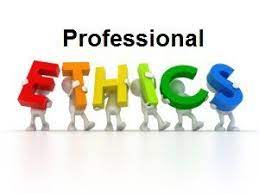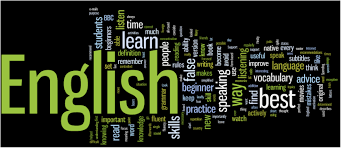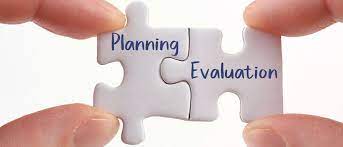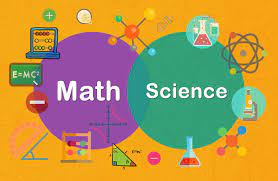
11 Courses

SEMESTER 4
Professional Ethics
This course provides a model of best practices to help in equipping students with professional and ethical understanding and decision making at the workplaces. It specifically focuses on the ethical theories and practices in various professions. It also emphasizes ethical dilemmas and conflict of interest, reporting procedures of an unethical conducts as well as challenges associated in reporting.

SEMESTER 4
Entrepreneurship in Education II
This course is a continuation of Entrepreneurship in Education I. The course is designed to equip students with skills to venture into business. Topics to be covered include: Identifying and assessing business opportunities; The concept of a business proposal; Components of a business proposal; Developing business proposal; Stages in the development of business career; Business Registration process; School permit processes and sectoral clearances. Setting up and managing a school; Causes of failure of a school, Basic record keeping in business venture, presentation of business plan.

SEMESTER 4
English IV
This course introduces techniques to creating and analyzing original prose and verse. It investigates conventions, devices, and techniques – both traditional and contemporary – in the actual writing of poems and stories. It is designed to develop students’ critical sense of writing and the process of revision. It also exposes students to the full range of possibility inherent in literary study. The course also helps students with the skills to develop and write project proposals and research papers in accordance with accepted standards of grammar, diction and mechanics.

SEMESTER 4
Teaching Reading Comprehension and Writing
This course focuses on developing literacy in the primary education classroom, covering concepts, materials, and strategies for reading fluency, comprehension, writing, and speaking, with an emphasis on supporting diverse students. Objectives include defining reading and writing instruction, identifying curriculum resources and practices for teaching reading comprehension, vocabulary, and writing aligned with standards, constructing differentiated learning experiences for reading and writing to meet diverse needs, identifying tools for assessing reading and writing proficiency, and interpreting student assessment data to evaluate reading and writing skills.

SEMESTER 4
Practicum in Early Childhood Education
This practical course offers experience in an early childhood educational setting, focusing on direct engagement with children aged 3 to 6 and aligning with Liberia's national teacher and early learning standards. It includes working with the Liberia National ECD Curriculum. The objectives encompass understanding and demonstrating competence in Liberia’s National Teachers Professional Performance Standards, utilizing the Teacher Planners series from the Liberia National ECD Curriculum for lesson planning, locating and aligning lesson plans with indicators in the Liberian Early Learning and Development Standards (ELDS), engaging positively with young children, and reflecting on teaching performance for professional growth.

SEMESTER 4
Planning and Evaluation
This course introduces learners to planning instruction and evaluating student learning in early childhood and primary grades, focusing on writing measurable learner objectives and creating lesson and unit plans. It emphasizes traditional and performance-based evaluation methods aligned with course objectives. The objectives include writing measurable daily learning objectives, understanding lesson plan components, introducing and closing lessons, describing student-centered approaches for inclusive education, writing lesson and unit plans incorporating Universal Design for Learning (UDL), understanding classroom assessment purposes, comparing various assessment types, describing alternative assessments for diverse learners, and developing evaluation items aligned with learning objectives.

SEMESTER 4
Natural and Life Sciences in Primary Grades
This course on teaching natural and life sciences in primary grades focuses on methods and materials, including evidence-based practices and inquiry-based approaches for teaching nature, living systems, and the scientific process. It emphasizes hands-on experimentation and aligns with the Liberian Primary Education curriculum. The objectives include understanding the role of science education in primary grades, the importance of outdoor activities, teaching and managing science instructional activities, developing inquiry skills, implementing strategies for teaching natural and living systems, health and safety concepts, setting learning objectives, assessing science content, and confidently delivering the Liberian Primary Education Curriculum in science.

SEMESTER 4
Natural and Life Science
This course focuses on methods and materials for teaching natural and life sciences in early childhood, emphasizing evidence-based practices and inquiry-based approaches aligned with the Liberia National Early Childhood Development curriculum. Objectives include understanding the significance of science education, fostering outdoor learning, implementing science instructional activities, promoting curiosity and wonder, teaching nature and living systems through inquiry-based strategies, setting learning objectives, assessing science content effectively, and confidently delivering the Liberia National ECD curriculum in natural and life sciences.

SEMESTER 4
Math and Science Practicum
This course offers practical experience in planning, teaching, and assessing mathematics and science in primary grades using integrated, culturally relevant, and inclusive pedagogy. Objectives include analyzing teacher-student interactions, reflecting on student-centered strategies, planning and implementing culturally relevant lessons aligned with Liberia's National Primary Education Curriculum, assessing student progress, evaluating instructional effectiveness, demonstrating professionalism, and maintaining an effective and respectful classroom environment.

SEMESTER 4
Content-Specific Methods for Early Childhood Math

SEMESTER 4
Content-Specific Methods in Primary Grades Math + General Methods for Math Education
This course provides comprehensive coverage of mathematics instruction in early childhood, focusing on teaching principles, tools, and student assessment across various mathematical areas, while enabling students to understand and implement key mathematical processes, instructional approaches, and develop appropriate teaching and assessment plans for early childhood mathematics concepts.
